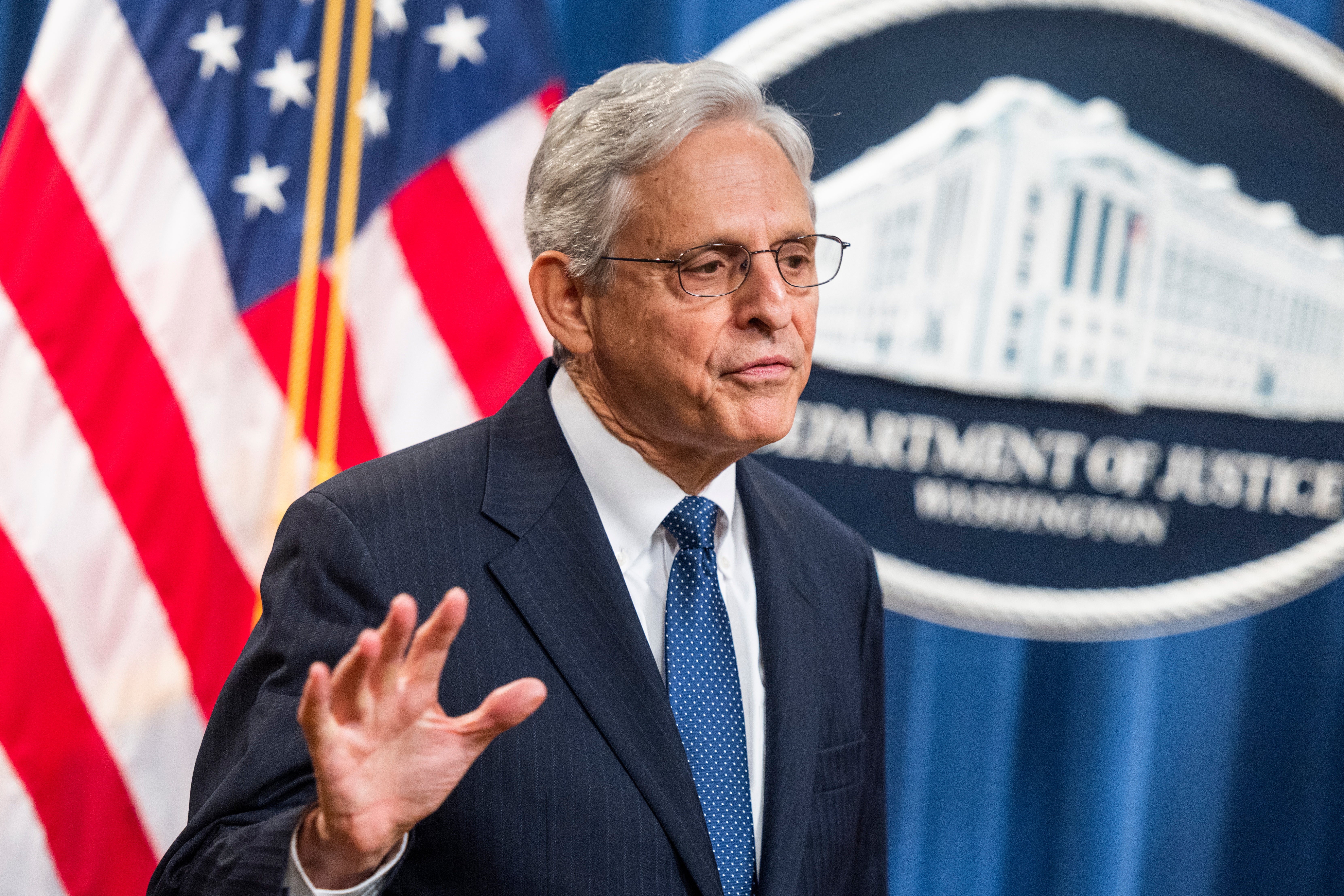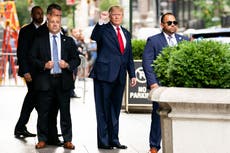Justice Department asks court to unseal search warrant for Trump’s Mar-a-Lago club
‘More information will be made available in the appropriate way and at the appropriate time’
Attorney general Merrick Garland on Thursday said the Department of Justice has asked a federal court in Florida to unseal the search warrant for former president Donald Trump’s home at Mar-a-Lago, the Palm Beach, Florida mansion turned private club where he maintains his primary residence.
Mr Garland said the department was asking the US District Court for the Southern District of Florida to unseal the warrant, which authorised a “court-approved” search for classified documents at Mr Trump’s home, “in light of the former president's public confirmation with the search the surrounding circumstances, and the substantial public interest in this matter”.
The attorney general, a former judge who spent decades on the US Court of Appeals for the District of Columbia, said “longstanding department rules” and “ethical obligations” precluded him from saying more about the circumstances of the search of the ex-president’s property.
But Mr Garland confirmed that he personally approved the decision to ask a judge to grant a search warrant for Mr Trump’s property, and said the department did not take lightly the decision to search a former president’s home.
“Where possible it is standard practice to seek less intrusive means as an alternative to a search and to narrowly scope any search that is undertaken,” he said, adding that the information he had just revealed was “all [he] can say right now”.
“More information will be made available in the appropriate way and at the appropriate time,” he said.
In the motion to unseal the search warrant, Justice Department attorneys said the American public has a “clear and powerful interest in understanding what occurred under these circumstances”, and added that such an interest “weighs heavily in favor of unsealing” the search warrant. They added that Mr Trump “should have an opportunity to respond” and “lodge objections” to unsealing the warrant, “including with regards to any ‘legitimate privacy interests’ or the potential for other ‘injury’ if these materials are made public”.
Mr Garland also condemned the attacks on FBI agents by Mr Trump and his allies in the days since the search of his property became public knowledge. Mr Trump has falsely described the search of his home as an “attack” by an “army” of FBI agents, and both he and his attorneys have claimed without evidence that FBI agents could have used the access the warrant granted them to plant evidence on his property.

Mr Garland called the “attacks on the professionalism of the FBI and Justice Department agents and prosecutors” from Mr Trump’s camp “unfounded” and said he would “not stand by silently when their integrity is unfairly attacked”.
“Men and women of the FBI and the Justice Department are dedicated, patriotic public servants. Every day, they protect the American people from violent crime, terrorism and other threats to their safety while safeguarding our civil rights,” he said. “They do so at great personal sacrifice and risk to themselves. I am honoured to work alongside them.”
The attorney general’s statement comes just after multiple reports indicating that federal investigators only resorted to a search warrant after attempting to use a subpoena to recover classified documents from Mr Trump’s property earlier this year.
The existence of the subpoena, which was issued by a Washington DC grand jury and used by Department of Justice investigators to retrieve some – but not all – of the documents sought from Mr Trump’s home, was first reported by John Solomon, a right-wing journalist who Mr Trump named as one of his official representatives to the National Archives and Records Administration just before his term expired last January.
The fact that a subpoena was issued months prior to the use of a search warrant suggests that investigators believed Mr Trump did not fully comply with it.
The dispute between Mr Trump and the government he once led over documents that were supposed to be turned over to the National Archives and Records Administration first became public in January, when Nara said it had recovered 15 boxes of documents from Mr Trump’s residence. The archives later told the House Oversight Committee that some of the documents were so sensitive that they could not be described without running afoul of laws governing the disclosure of national defence secrets.
Join our commenting forum
Join thought-provoking conversations, follow other Independent readers and see their replies
Comments


Bookmark popover
Removed from bookmarks